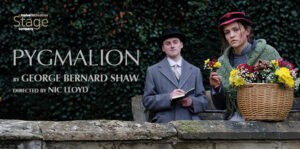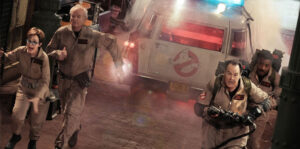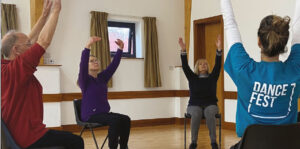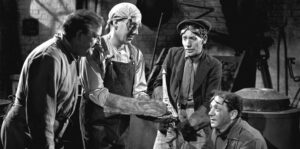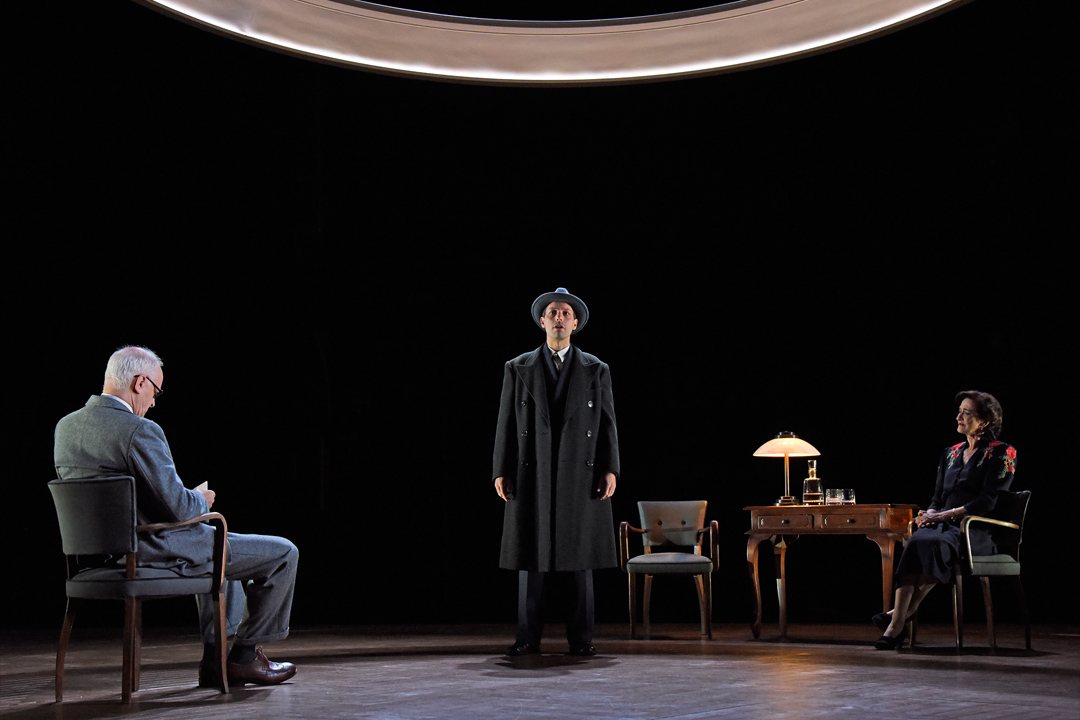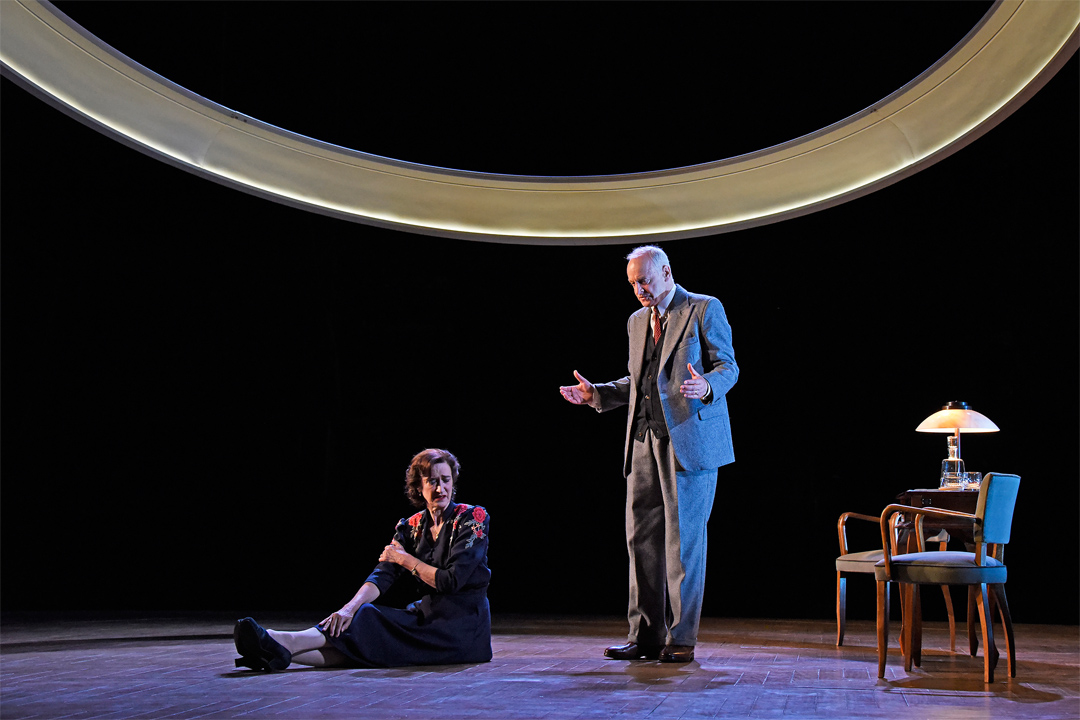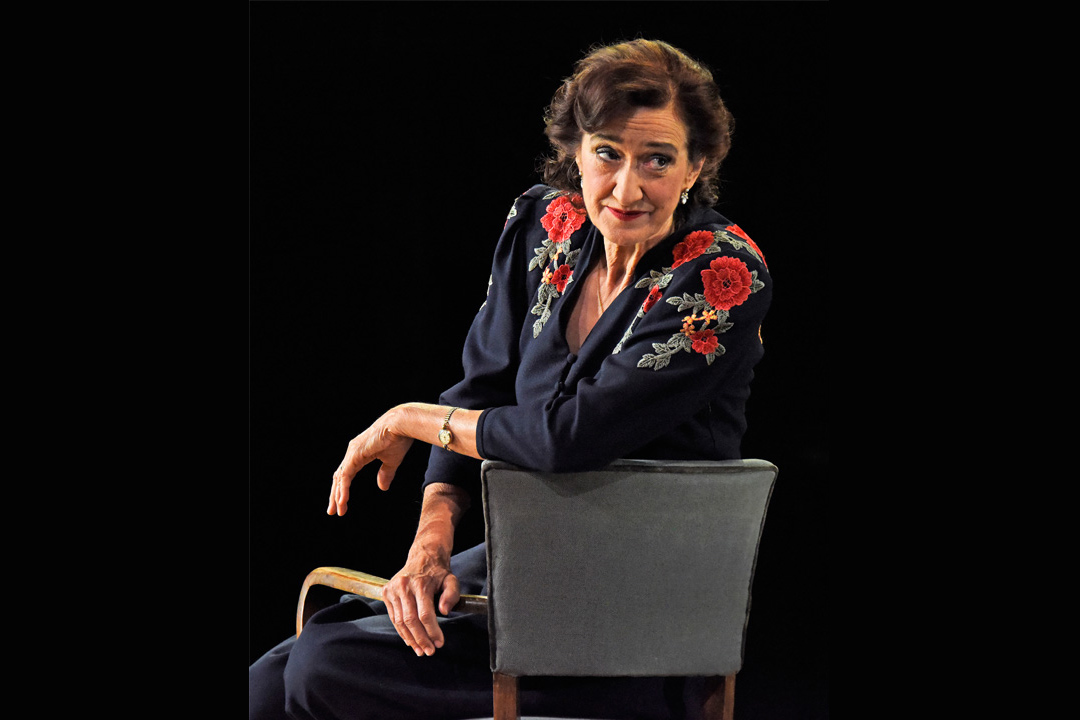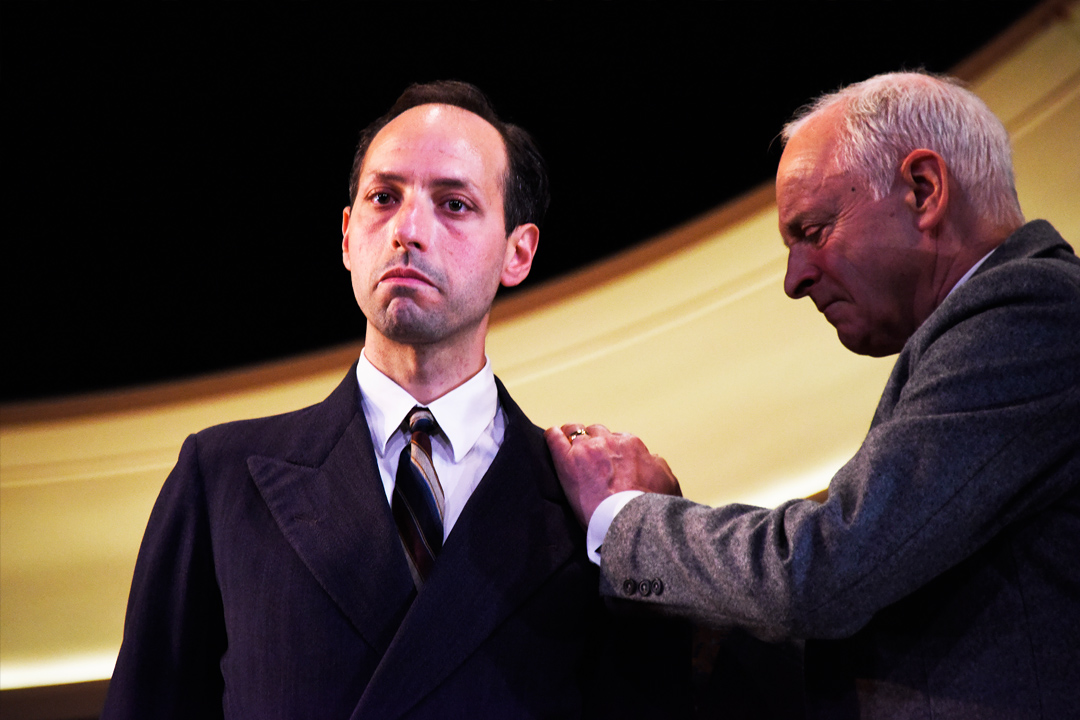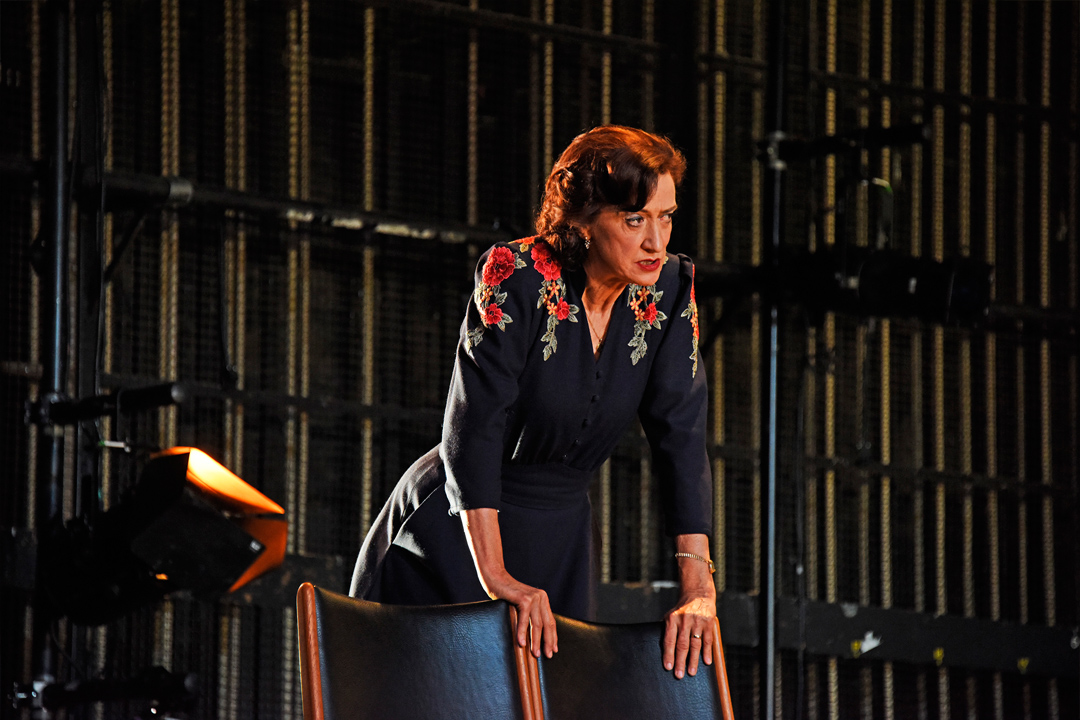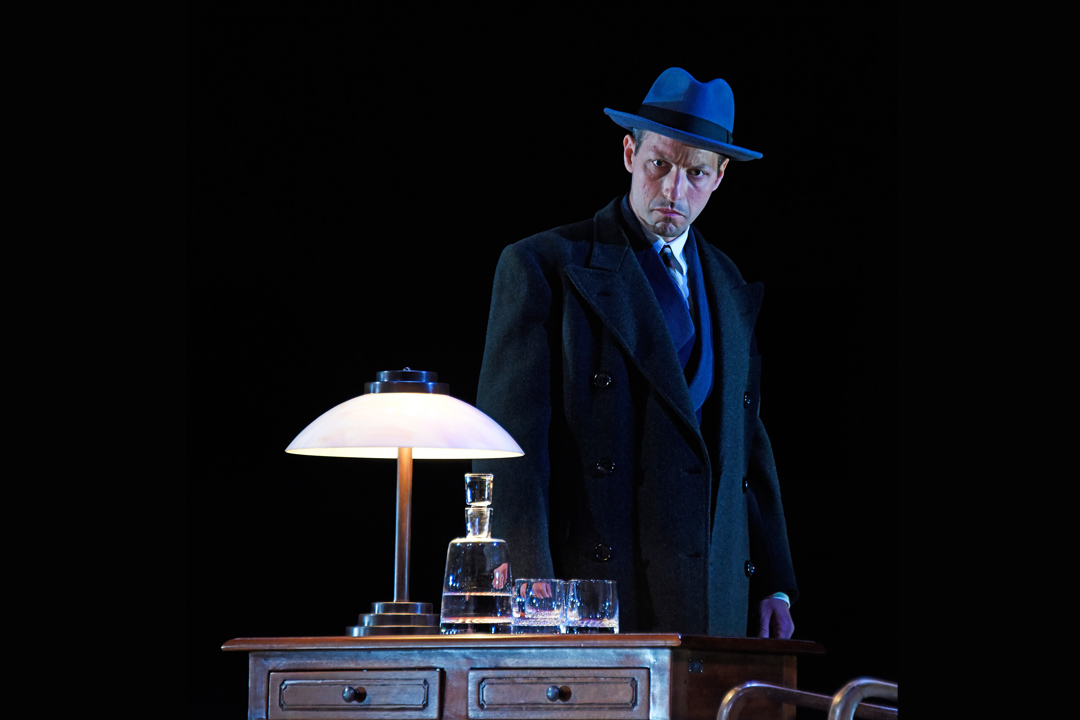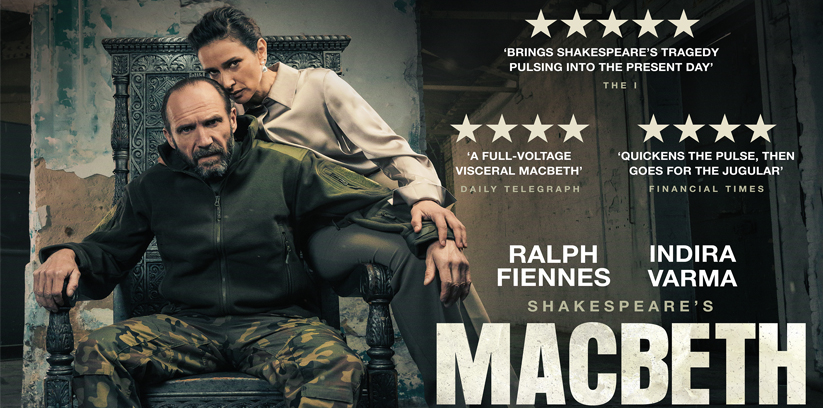
Coming Soon
Event Calendar
| M | T | W | T | F | S | S |
|---|---|---|---|---|---|---|
Back to Black (15)
Pygmalion
Evil Does Not Exist (12A)
Paul Potts – From the Heart
Ghostbusters: Frozen Empire (12A)
Event Search
- This event has passed.
Copenhagen
5th July 2021 - 10th July 2021
Event Navigation
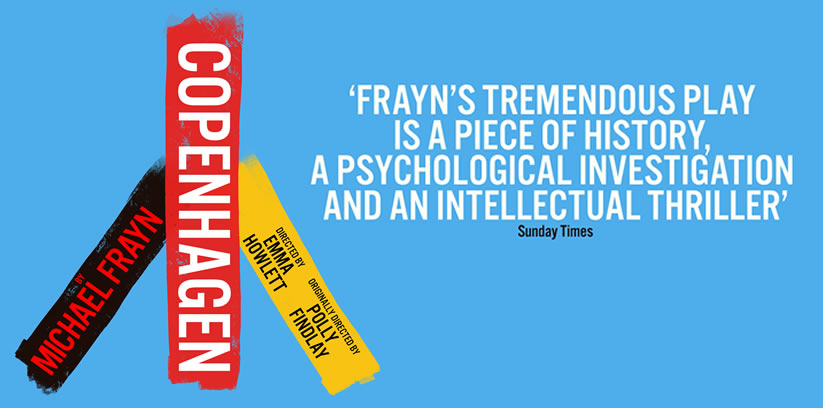
Theatre Royal Bath Productions presents
PHILIP ARDITTI, HAYDN GWYNNE, MALCOLM SINCLAIR in
Copenhagen
by Michael Frayn
Directed by Polly Findlay
Michael Frayn’s multi award-winning masterwork is a dazzling exploration of two brilliant minds and their motives.
In Nazi occupied Copenhagen in 1941, a clandestine encounter took place between two Nobel Prize winning physicists, Dane Niels Bohr and Werner Heisenberg, a German. The men were old friends and long-term colleagues, but now found themselves on opposite sides of the divide.
Under the watchful eye of Bohr’s wife, Margrethe, Frayn speculates on the debates which might have taken place, an exchange of transformative ideas which had huge implications for both the Nazis and the Allies, and for our world today.
This totally absorbing historical detective story, conjured from a smattering of scientific facts, is a daring, fascinating and stimulating drama that enjoyed a hugely acclaimed run at the National Theatre before transferring to the West End and Broadway and winning the 2000 Tony Award for Best Play.
Haydn Gwynne was BAFTA nominated for her role as newsreader Alex in Channel 4’s Drop The Dead Donkey and won the Drama Desk Award for Outstanding Featured Actress in a Musical for the Broadway production of Billy Elliot the Musical.
Malcolm Sinclair was Olivier Award nominated for his roles as Eisenhower in Pressure and Major Flack in Privates on Parade. Other credits in a career spanning more than thirty years include regular appearances for the RSC and National Theatre, film roles in Casino Royale and V for Vendetta and Judge John Deed, Silk and Parade’s End on television.
Philip Arditti has recently worked with the Globe Ensemble, a ten-strong company of performers producing all of Shakespeare’s History plays at London’s Globe Theatre. Recent National Theatre credits include As You Like It and Salome.
“The word ‘tremendous’ is often used, but seldom deserved. In this case, it is” Sunday Times
“A remarkable play” Guardian
“Frayn makes ideas zing and sing” Daily Telegraph
Running Time: Approximately 2 hours 30 minutes, including one 20-minute interval.
Production photos by Nobby Clark
Performances taking place before July 19th will be sold at half capacity in line with Government guidelines. Thereafter, performances may initially be sold at half capacity in case restrictions remain, although capacities may increase if not. Prevailing Government guidance on face coverings and distancing will be observed and enhanced cleaning routines will remain in place.
Please read our Covid-19 Safety Guidelines prior to booking.
Related Events
Event Reviews
-
Choice Radio Worcester
A slowly revolving set. Lit by a giant illuminated halo. And talk of atoms whizzing through space. There's clearly a theme here and it is one which brings together two distinguished scientists, Werner Heisenberg and Niels Bohr along with the latter's wife, Margrethe. One is German and the couple Danish. Unfortunately, this is 1941 and Denmark is occupied by Germany so why is this meeting at the Bohr's very likely bugged house taking place? Based on certain known facts, Michael Frayn's "Copenhagen" delves into the conversation that could have taken place, allowing each of the scientists to present their own view of the events which were happening both in the scientific world and in the real world, two spheres inextricably connected via the development of the atomic bomb. Reason comes in the form of "the good wife" seeing both sides of the argument and trying to identify how these two friends who were previously more like father and son in the pre-war era could now be at loggerheads. And there are some serious arguments between them to be smoothed over.
Haydn Gwynne (best known for Channel 4's Drop The Dead Donkey and perfectly cast as Camilla in The Windsors) is brilliant as the calm, collected wife, never flustered but knowledgeable too as it was her job to type up her husband's draft papers. She sees the flaws in both men, not necessarily siding with her husband. The sparring partners (Philip Arditti as the German and Malcolm Sinclair as the Dane) have some long speeches with plenty of technical scientific terminology which they pull of faultlessly and which is, to be honest, no mean feat (fortunately you don't have to understand it to believe it and you can leave "Splitting the atom for Dummies" at home!). Whereas Bohr, through age or experience, tends to think through things more logically, Heisenberg is more impetuous, often not knowing why he took a particular decision which is something Bohr repeatedly questions him on. But for all his calculated logic, it is ultimately Bohr who has ended up being the half-Jewish one in an occupied country.
The "reality" of the conversation - if indeed there is one, given the protagonists' different views - was always contested and will never be known since, as Margrethe states at the start of the play, "we're all dead now". But the play gives a fascinating insight into what could have been, helped by the excellent cast who make it so believable. We can all just be glad that, for whatever reason, Germany did fail to fulfil their Atomic Bomb Project due at least in part to the fact that many German Jewish scientists had already decamped to Britain and America...
This play is part of a duo of shows currently on tour from the Theatre Royal Bath. Next week, it is the turn of David Mamet's Oleanna.
-
Richard Edmonds
When you sit in the dark of a theatre reviewing a play, a reading, a dance programme or whatever, you realise, with what I can only describe as a warm glow, that memory is a great comfort in these disastrous days of a cruel pandemic which has had an extreme effect on performance art world wide.
Great art--or, at least great acting, leaves its mark and makes hash of social misery.
Looking back over time, you ask yourself where would we be without a memory of greatness in the theatre, my immediate answer is much poorer!
Many years ago, during a visit to Paris, I saw Ingrid Bergman in "Tea and Sympathy", as an older woman offering support to a young man distraught with the realisation that he was gay. Yes, there's always "Casablanca", but her subtle performance never left me.
Again, there was Simon Russell Beale's "Hamlet", premiered here at Malvern, where Russell Beale held the house spellbound in the scene with Rosencrantz
and Guildenstern, where the metaphor of a simple flute is used to reveal treachery.
Hamlet: "Will you play upon this pipe?"
Guildenstern: "My lord, I cannot"
Hamlet: "You would play upon me, you would seem to know my stops. 'Sblood! Do you think I am easier
to be played on than a pipe?"
The list of these wonderful, unforgettable moments is endless. On dull days they enrich the mind, yet obviously to define them all would distract from the business of reviewing "Copenhagen", but we should all be much poorer without a memory of the late Elaine Stritch, who I saw hobbling onto a stage in Los Angeles,pushing a battered chair on wheels as a tired old tart with the immortal words: "It's not the job that gets to yer--it's the stairs."
Or again Barbara Leigh-Hunt, sitting on the steps in the great playing space of The Shakespeare Centre at Stratford during a Poetry Festival performance, of a programme I had written for Bar and her husband Richard Pasco, called "Silver Apples of The Moon, Golden Apples of the Sun" simply speaking "Over The Rainbow" while a audience sat bewitched by a song that Danny La Rue ( who sang it to me at Birmingham Hippodrome during a performance of "The Good Old Days ") and Bar, who each in their own way, turned into a gentle and extremely moving hymn for hope.
It is revealed that Birmingham Hippodrome will present Peter Wright's "The Nutcracker" at Christmas.
Nothing will ever surpass Robert Parker's wonderful performance as the nutcracker doll ( several years ago) waking from doll--like status to a real flesh and blood man as the Christmas tree changed into a gigantic thing, while some of us sat transfixed by Parker's bewitching , never to be forgotten performance, equalled only by Marion Tait's tragic, heartbroken Giselle, one of the finest interpretations of that lovely ballet I have ever had the good fortune to see and with a sense of tragedy not likely to be seen again this century.
Some months ago, Malvern had a rare one-man performance of Marlowe's tragedy: "Dr. Faustus", which was remarkable, then came "The Snow Goose", all of these things evidence of real courage in the face of a killer-virus.
Yet Malvern showed greater institutions, not 100 miles away and on massive government grants, how to do it and now here is Michael Frayn's fascinating "Copenhagen", subtle, played like a clever game of tennis, with a trio of clever actors and a fascinating plot.
Frayn asks the question just exactly what transpired in Nazi-occupied Copenhagen in 1941,. when top German physicist, Werner Heisenberg, a prominent figure in Hitler's "Uranium Club" ( Philip Arditti in a magnificent, razor-sharp performance) visits his old professor the Danish scientist Niels Bohr (Malcolm Sinclair). Much of what transpired at that meeting is a mystery. To escape the Nazi bugging of Bohr's house, the two men went for a walk, what Bohr and his former student discussed was unrecorded in the days before mobile phones
Later reports between friends who knew both men well suggested a moral confusion relating to the atom bomb. We hear Bohr's fears of total destruction of millions of innocent people likely to die, but Heisenberg insists that in spite of pressure from Hitler, he had only come up with a reactor and not the bomb itself.
And so, Heisenbery insisted later that he had come to Copenhagen purely to convince Bohr to help him prevent the construction of atomic bombs by both German scientists and presumably those in America led by Oppenheimer who would eventually test a bomb at Los Alamos, with subsequent horror for innocent Japanese people.
In all these discussions, Bohr's wife ( Haydn Gwynne in a very fine 1940s embroidered dress) moves from chair to chair protesting, advising and criticising with an authority that suggests she herself shares Bohr's moral certainties.
But were lies told about what exactly was said in Copenhagen during Heisenberg's visit? To this day, there is uncertainty about what exactly transpired in that extraordinary meeting, and official, declassified papers have never made clear what went on between Bohr and Heisenberg.
What is certain, however is that Frayn has created a masterpiece with dazzling acting by a dedicated company and with inspired direction by Emma Howlett. This is remarkable work created at probably the most difficult time in theatre history, since the Great Plague closed London theatres early in the 17th century. I must extend my congratulations to everyone involved in its creation, and to Nic Lloyd at Malvern for bringing it to his theatre.

